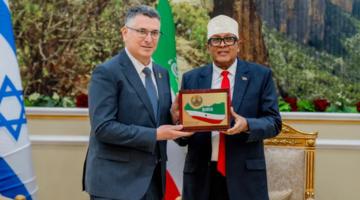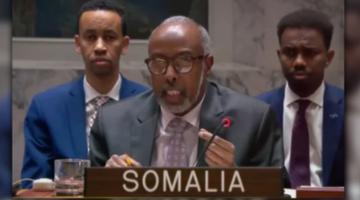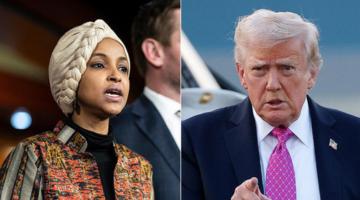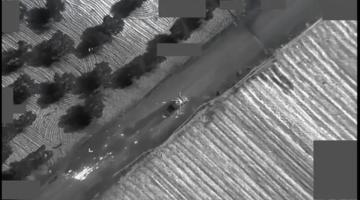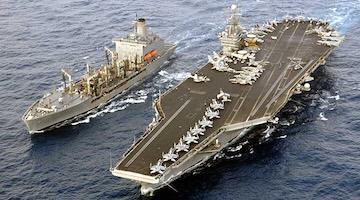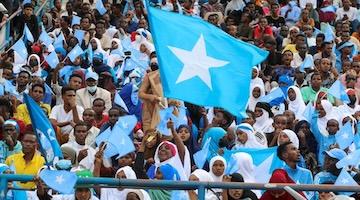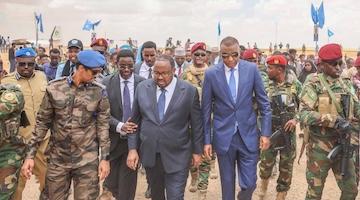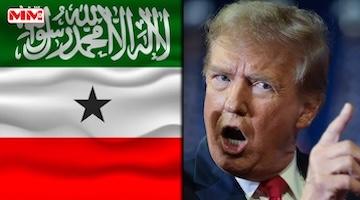Somali nationalists claim victory and raise the Somali flag above the city of Las Anod.
On Saturday, August 26, blue flags and social media messages proclaimed a Somali nationalist victory over the secessionist forces that had held them under siege in the city of Las Anod and the surrounding region of Sool, Sanaag, and Cayn (SSC) since February 2023. Dr. Abdiwahab Sheikh Abdisamad, a frequent contributor to Black Agenda Report, tweeted, “With today’s developments in #SSC I want to call on Khaatumo State & its leaders to be gracious in victory, please treat the misguided young men from #Somaliland forces decently.”
This story has received no international press, but it’s a crucial victory in the struggle for a cohesive Somali nation. I spoke to Somali American software engineer and writer Jamal Abdulahi, about its meaning and its significance to the various imperial interests discouraging Somali unity.
ANN GARRISON: Jamal, you have written about the nationalist struggle in Somalia’s Sool, Sanaag, and Cayn region for Black Agenda Report, but could you summarize it again?
JAMAL ABDULAHI: In late 2022, secessionist forces attempted to break up peaceful unionist protests in the city of Las Anod but ended up killing scores and wounding scores more. Among those killed were a number of young people who were executed at point blank range by the secessionist forces.
The killings sparked an uprising that quickly became an armed struggle. Thousands took up arms against the secessionist regime headquartered in Hargeisa.
The secessionist forces regrouped and received more reinforcements from Hargeisa. They gathered at Goojacade, a former Somali National Army base at the outskirts of the city. It’s from this base that the secessionist forces shelled the city of Las Anod indiscriminately for six months.
Many civilians were killed and many more wounded. Displacement is estimated at over 100,000.
Local unionist forces engaged in pitched battles with secessionist forces each time the city was shelled.
Finally, unionist forces broke through the secessionists’ defense lines on Saturday, August 26, 2023, and the secessionists suffered a crushing defeat.
Hundreds of secessionist forces were captured, and scores were killed and wounded. The scattering secessionists abandoned a great deal of military hardware, including heavy artillery, rocket launchers, and armored personnel carriers.
Secessionist forces who fled regrouped in the town of Oog, 90 miles north of Las Anod. This is where leaders of SSC-Khaatumo demanded that secessionist forces be withdrawn in early 2023 for talks to commence.
Now that secessionist forces are in Oog, SSC-Khaatumo leadership has called for peace talks despite ongoing bellicose rhetoric from Somaliland President Muse Bihi. It’s a tremendous victory for the unionists and for peace in northern Somalia.
AG: What are the imperial interests involved in this struggle, and how might this victory affect them?
JA: Both the UK and the United States have strategic and natural resource interests in northern Somalia.
The British have a colonial legacy in the region, which was a British protectorate before the Somali Republic was born in 1960, so there are historical ties. Recently, the British firm Genel Energy has been exploring for oil and gas in the region.
For the United States, the 2022-2023 National Defense Appropriation Act (NDAA) calls for a feasibility study for establishing a military base in the port of Berbera on Somalia’s northern coast. That is continuing.
It’s unlikely that either will be dramatically impacted by the unionist victory over the secessionists in SSC in the near future. Both the UK and United States have vast resources to protect their interests.
AG: The call for a feasibility study in the 2022-2023 NDAA for building a US military base in the Port of Berbera repeatedly spoke of negotiating with Somaliland directly, bypassing the federal government and violating Somalia’s sovereignty, but President Hassan Sheikh Mohamud didn’t protest. Why do you think he didn’t object to seeing Somalia’s sovereignty violated in this way?
JA: Hassan Sheikh Mohamud has been swimming in a third lane in between unionists and secessionists. He has seemed willing to accept two functionally parallel states, Somalia and Somaliland—based on colonial boundaries—while maintaining the idea of one country in name only. This emerged from negotiations with secessionists during his first presidency, from 2012 to 2017.
AG: Somalia seems to be little more than a flag and a UN seat. In a sign of just how weak the federal government is, President Mohamud didn’t even seem to take interest in the fact that a secessionist war was going on in the north of the country. Why do you think that was?
JA: Mohamud met with the leader of the secessionist movement in Djibouti. He once invited SSC traditional leaders to Mogadishu for talks. He issued a number of video statements between talks. The statements were convoluted but vaguely pro-secession. The vast majority of Somalis dismissed them as a kind of political triangulation with no tangible results.
AG: Why do you think that the US government felt compelled to negotiate with Somaliland rather than Somalia over the military base in Berbera Port?
JA: The United States has a history of being transactional in this part of the world. The bureaucrats at the Pentagon would tell you that they make decisions based on reality on the ground. Muse Bihi controls Berbera.
Mohamud has not shown inclination to see a truly unified Somalia. Above all, he came to power with the help of the United States. There is no reason to expect he would oppose the United States' obvious violation of Somalia’s sovereignty. Somalia and the United States are now puppet and puppeteer shows.
AG: Elements of the US government seem to have favored Somaliland secession, as evidenced by Secretary of Transportation Pete Buttigieg’s bizarre advocacy for it earlier on in his career, and by that of the Heritage Foundation. They seem to want to make it out to be the Taiwan of Africa. What do you make of that?
JA: Somalia has many clan fiefdoms, which are formally designated Federal Member States. They were intended to be administrative regions but often act as sovereign nations within Somalia. Most Federal Member States have independent contacts, relationships, and agreements with foreign countries independent of Somalia. So what Pete Buttigieg was advocating in secessionist Somaliland also happens in other regions that do not claim to be independent of Somalia.
I think it may simply be that Buttigieg, and even the Heritage Foundation, are paid lobbyists for Somaliland.
AG: In any case, the US has gone out of its way to suppress the struggle for a unified Somali nation and to undermine the previous, hugely popular Somali president, Mohamed Abdullahi Mohamed, aka Farmaajo. Why do you think that is?
JA: The only interests that the US acknowledges in Somalia are fighting terrorism and establishing geostrategic advantage, as with the military base in Berbera. It also blocks competitors, most of all China and Russia, from exerting influence in the country.
The current thinking among many Pentagon and State Department bureaucrats seems to be that transactions are more expedient and lopsided in favor of the United States when they deal with the clan fiefdoms known as Federal Member States instead of a united Somalia. President Farmaajo tried to build a real Somali nation and demanded an equal country-to-country relationship rather than a subservient one. That was essentially why he fell out with the United States.
Hassan Sheikh Mohamud promised not to do anything without the approval of the United States in one of many meetings at the United States Embassy, according to at least one person present.
Ann Garrison is a Black Agenda Report Contributing Editor based in the San Francisco Bay Area. In 2014, she received the Victoire Ingabire Umuhoza Democracy and Peace Prize for her reporting on conflict in the African Great Lakes region. She can be reached at ann(at)anngarrison.com. Please help to support her work on Patreon.

